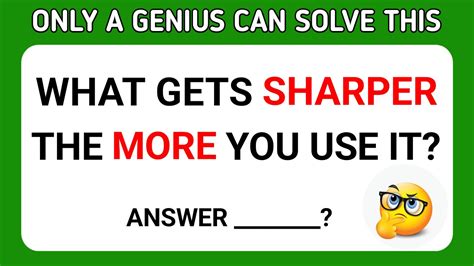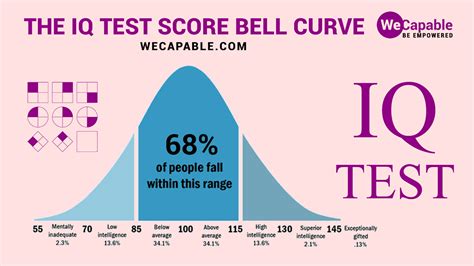
Only those with exceptionally high intelligence may be able to define all 34 words featured in a vocabulary quiz circulating online, testing linguistic prowess with terms ranging from common to obscure.
Do you consider yourself a wordsmith? A new online quiz challenges individuals to define 34 words, claiming that only “geniuses” can ace it. The quiz, highlighted by Yahoo Lifestyle, presents a mix of everyday and more complex vocabulary, probing test-takers’ understanding of definitions and nuances of language.
The challenge underscores the ongoing fascination with intelligence testing and the perception that vocabulary size directly correlates with cognitive ability. While experts acknowledge a link between vocabulary and IQ, they also caution against equating linguistic skill with overall intelligence.
The Vocabulary Challenge: Are You a Genius?
The quiz, which originated on various online platforms, gained traction after being featured on Yahoo Lifestyle. It presents a list of 34 words, asking participants to provide accurate definitions. The words span a range of difficulty, including terms like “lackadaisical,” “ubiquitous,” and “esoteric.”
“Vocabulary size is often used as a proxy for general intelligence,” explains Dr. Sarah Johnson, a cognitive psychologist specializing in language acquisition. “The idea is that individuals with higher cognitive abilities tend to acquire and retain a larger vocabulary throughout their lives. However, it’s important to remember that vocabulary is just one facet of intelligence.”
A Glimpse into the Word List
While the specific list of 34 words varies slightly depending on the version of the quiz, common examples include:
- Lackadaisical: Lacking enthusiasm and determination; carelessly lazy.
- Ubiquitous: Present, appearing, or found everywhere.
- Esoteric: Intended for or likely to be understood by only a small number of people with a specialized knowledge or interest.
- Gregarious: Fond of company; sociable.
- Capricious: Given to sudden and unaccountable changes of mood or behavior.
- Ephemeral: Lasting for a very short time.
- Pernicious: Having a harmful effect, especially in a gradual or subtle way.
- Propinquity: The state of being close to someone or something; proximity.
- Quixotic: Exceedingly idealistic; unrealistic and impractical.
- Reticent: Not revealing one’s thoughts or feelings readily.
These examples illustrate the diverse range of vocabulary tested, from relatively common words like “gregarious” to more obscure terms like “propinquity.” Success on the quiz requires not only familiarity with the words but also a nuanced understanding of their meanings and usage.
Vocabulary and Intelligence: A Complex Relationship
The link between vocabulary and intelligence has been a subject of debate among psychologists and linguists for decades. While research consistently shows a positive correlation between the two, the nature of this relationship is complex and multifaceted.
“Vocabulary is undoubtedly an important indicator of cognitive ability,” says Professor David Miller, a professor of linguistics at a leading university. “A large vocabulary reflects a broad range of knowledge, including verbal reasoning, comprehension, and memory. However, it’s crucial to avoid oversimplifying the relationship. Intelligence is a multifaceted construct, and vocabulary is just one piece of the puzzle.”
Several factors contribute to the correlation between vocabulary and intelligence. First, individuals with higher cognitive abilities tend to be more adept at learning and retaining new words. They may be more curious, more motivated to expand their knowledge, and more skilled at identifying patterns and making connections.
Second, vocabulary acquisition is often a byproduct of intellectual engagement. People who read widely, engage in stimulating conversations, and pursue intellectual interests are more likely to encounter new words and incorporate them into their vocabulary.
Third, vocabulary can serve as a proxy for other cognitive abilities. A large vocabulary may indicate strong verbal reasoning skills, a good memory, and the ability to understand complex concepts.
However, it’s important to acknowledge that vocabulary is not a perfect measure of intelligence. Numerous other factors, such as creativity, problem-solving skills, emotional intelligence, and practical intelligence, also contribute to overall cognitive ability.
Limitations of Vocabulary-Based IQ Tests
While vocabulary tests can provide valuable insights into an individual’s cognitive abilities, they also have several limitations.
First, vocabulary tests are culturally biased. The words included in the test are often drawn from a specific cultural context, which may disadvantage individuals from different cultural backgrounds.
Second, vocabulary tests can be influenced by education and socioeconomic status. Individuals with access to better educational resources and more opportunities for intellectual stimulation tend to have larger vocabularies, regardless of their underlying cognitive abilities.
Third, vocabulary tests may not accurately reflect an individual’s true potential. Some people may have a limited vocabulary due to factors such as learning disabilities, language barriers, or lack of exposure to a rich linguistic environment.
“It’s important to interpret vocabulary test results with caution,” advises Dr. Emily Carter, an educational psychologist specializing in assessment. “Vocabulary tests can be useful tools for identifying individuals who may benefit from additional support, but they should not be used as the sole basis for making decisions about education or employment.”
Beyond Vocabulary: A Broader View of Intelligence
The “genius” quiz highlights the importance of vocabulary but also underscores the need for a broader view of intelligence. True intelligence encompasses a wide range of cognitive abilities, including:
- Verbal Reasoning: The ability to understand and reason with language.
- Mathematical Reasoning: The ability to solve mathematical problems and understand quantitative concepts.
- Spatial Reasoning: The ability to visualize and manipulate objects in space.
- Logical Reasoning: The ability to identify patterns, draw inferences, and solve problems logically.
- Memory: The ability to store and retrieve information.
- Attention: The ability to focus and concentrate.
- Problem-Solving: The ability to identify and solve problems effectively.
- Creativity: The ability to generate new and innovative ideas.
- Emotional Intelligence: The ability to understand and manage emotions.
- Practical Intelligence: The ability to adapt to real-world situations and solve practical problems.
“Intelligence is not a single, monolithic entity,” emphasizes Dr. Johnson. “It’s a complex interplay of different cognitive abilities, each of which contributes to overall cognitive function.”
How to Improve Your Vocabulary
Regardless of your current vocabulary level, there are many ways to expand your linguistic repertoire. Here are a few strategies:
- Read Widely: Reading is one of the most effective ways to learn new words. Expose yourself to a variety of texts, including novels, newspapers, magazines, and academic journals.
- Use a Dictionary and Thesaurus: When you encounter an unfamiliar word, look it up in a dictionary. Pay attention to the word’s definition, pronunciation, and etymology. Use a thesaurus to find synonyms and antonyms, which can help you understand the nuances of the word’s meaning.
- Learn Roots, Prefixes, and Suffixes: Many English words are derived from Latin and Greek roots, prefixes, and suffixes. Learning these building blocks can help you decipher the meanings of unfamiliar words.
- Play Word Games: Word games like Scrabble, Boggle, and crossword puzzles can be a fun and engaging way to expand your vocabulary.
- Engage in Conversations: Engaging in conversations with knowledgeable and articulate people can expose you to new words and ideas.
- Use Flashcards: Create flashcards with new words and their definitions. Review the flashcards regularly to reinforce your learning.
- Write Regularly: Writing regularly can help you incorporate new words into your vocabulary. Try writing essays, stories, or poems.
- Use Vocabulary-Building Apps: Numerous vocabulary-building apps are available for smartphones and tablets. These apps can provide a structured and engaging way to learn new words.
- Set Vocabulary Goals: Set realistic vocabulary goals for yourself. For example, you might aim to learn five new words each week.
- Be Patient: Learning new words takes time and effort. Don’t get discouraged if you don’t see results immediately. Just keep practicing, and you’ll gradually expand your vocabulary.
The Allure of Intelligence Tests
The widespread interest in quizzes and tests claiming to measure intelligence reflects a deep-seated human desire to understand and quantify cognitive ability. People are naturally curious about their own intelligence and how they compare to others.
Intelligence tests can provide valuable information about an individual’s cognitive strengths and weaknesses. They can be used to identify individuals who may benefit from additional support, to guide educational and career decisions, and to track cognitive changes over time.
However, it’s important to remember that intelligence tests are just one tool for assessing cognitive ability. They should not be used as the sole basis for making judgments about an individual’s worth or potential.
The Takeaway
The online vocabulary quiz serves as a reminder of the importance of language skills and the ongoing fascination with intelligence testing. While vocabulary is undoubtedly an important indicator of cognitive ability, it is just one piece of the puzzle. True intelligence encompasses a wide range of cognitive abilities, including verbal reasoning, mathematical reasoning, spatial reasoning, logical reasoning, memory, attention, problem-solving, creativity, emotional intelligence, and practical intelligence.
By expanding your vocabulary and cultivating your cognitive abilities, you can enhance your overall cognitive function and unlock your full potential. The vocabulary “genius” quiz is nothing more than a fun and interesting challenge, as a person’s vocabulary level depends on different variables such as their educational level, background, reading level and interest. Therefore, a vocabulary test should never be an indicator of someone’s intelligence or potential.
Frequently Asked Questions (FAQ)
1. Does vocabulary size directly equate to intelligence?
No, while there’s a correlation, vocabulary size is just one aspect of intelligence. Factors like problem-solving skills, emotional intelligence, and practical intelligence also play significant roles. “Vocabulary size is often used as a proxy for general intelligence,” explains Dr. Sarah Johnson, “The idea is that individuals with higher cognitive abilities tend to acquire and retain a larger vocabulary throughout their lives. However, it’s important to remember that vocabulary is just one facet of intelligence.”
2. Are vocabulary tests a reliable measure of intelligence?
Vocabulary tests can provide insights but have limitations. They can be culturally biased and influenced by education and socioeconomic status, says Dr. Emily Carter, “It’s important to interpret vocabulary test results with caution,” advises Dr. Emily Carter, an educational psychologist specializing in assessment. “Vocabulary tests can be useful tools for identifying individuals who may benefit from additional support, but they should not be used as the sole basis for making decisions about education or employment.”
3. How can I improve my vocabulary?
Effective strategies include reading widely, using a dictionary and thesaurus, learning roots/prefixes/suffixes, playing word games, engaging in conversations, using flashcards, writing regularly, and utilizing vocabulary-building apps.
4. What other factors contribute to overall intelligence besides vocabulary?
Intelligence is multifaceted and includes verbal reasoning, mathematical reasoning, spatial reasoning, logical reasoning, memory, attention, problem-solving, creativity, emotional intelligence, and practical intelligence.
5. Are there any downsides to relying solely on vocabulary quizzes to assess intelligence?
Yes, over-reliance can lead to inaccurate assessments due to cultural bias, educational disparities, and the exclusion of other crucial cognitive skills. It doesn’t encompass the full spectrum of intellectual abilities and potential. Intelligence tests are just one tool for assessing cognitive ability. They should not be used as the sole basis for making judgments about an individual’s worth or potential.









